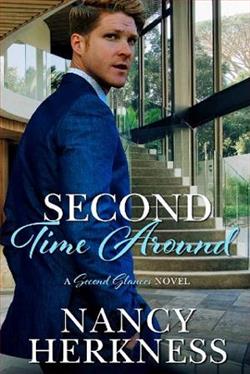Page 4 of The Enduring Universe
“Can you afford to waste the few seeds we have left to traject me back and forth?” she asked. “Making a new city is our only real hope for any future. This mission is more important than me.”
“Is it?” Esk said skeptically. “What will happen if you cannot convince the Virohi, my dear?”
If she lost control of the Virohi, they would try to escape their form within Irshar. People would get hurt, more than they did now, and who knew if Ahilya would ever be able to lock the cosmic creatures back into the architecture. It had taken all of the everdust—an element they no longer had—the first time. If she lost control, then every day could be filled with tragedies.
Worse, the Virohi could affect their world again, both in the jungle and in the skies. If humanity was lucky, it would endure a slow decay filled with failing architecture, but if not, a massive final storm could erase the fragile life the survivors had attempted to build. The last of humanity would become extinct. It was what they’d faced only a few months ago, when Ahilya had made the fateful decision to wrap the Virohi into Irshar.
“It would be awful,” she relented. “But the council chose this option for a reason. We all have our duties. These architects are meant to build with you, and Chaiyya is supposed to guide me.”
“She should have joined the expeditionary team, then,” Eskayra said, frowning.
They’d had this conversation before; Irshar could not afford for two councilors to go on this expedition, and Chaiyya’s infant daughters needed her. It was decided that Ahilyaneededto go, while Chaiyya did not. Did Esk really expect Irshar to bow down further to Ahilya’s needs? It was stunning how she refused to see how much Ahilya was disliked. How badly she had made mistakes.Thatwas the real reason Ahilya had been asked not to overextend—to not make any more decisions without anyone else at the helm. She should have been tried as a criminal, but here they were, dependent on her, and the council was now doing all it could to control her.
“Why do you insist this?” Ahilya asked softly. “I agreed to listen to the council. To act in a manner they see fit.”
“Did you agree because you think they are right? Or because you think you deserve punishment? Chaiyya is supposed to take care of you, but how are you to do your job if she recuses herself whenever it is convenient for her? The council makes its calculation, but being away from Irshar has been hard for you. Every day you suffer more.”
“You expect me to fail,” she said, uncomfortable. “You’re insisting because you don’t expect me to be able to convince the Virohi without Chaiyya.”
Eskayra drew back at that, hurt on her face. “Never. I am concerned about the toll this is taking on you. That doesn’t make mehim.”
Ahilya said nothing. Cataclysms aside there were other costs that only she cared about. If the cosmic creatures escaped, Iravan would unleash war in his attempt to finally destroy the Virohi. It was what he was counting on—the failure of her will. Left to themselves, the councilors of Irshar would have her relinquish the Virohi to him too. The only reason they had not commandedAhilya to do so was because removing the cosmic creatures would hurt Irshar.
It was a terrible stalemate. Irshar was as much a hostage to Ahilya’s actions with the Virohi as it was to Iravan’s desires. Though he had resources in his Garden, Iravan had refused to share them. It was another reason Ahilya was here, looking for city-sites.
Eskayra glanced at her, shaking her head. “He is not a good man.”
He is trying to be, Ahilya thought, but she couldn’t defend this erosion of trust, and how she and Iravan found themselves over and over again at opposite ends of a fight, counting on and waiting for each other to fail. When had that begun?
She wanted to explain how she saw Iravan to Eskayra. This was the same man who had once wanted to change things within Nakshar. Once, both of them had planned for how to raise non-architects to the council. Though Ahilya had accused him of corruption, she had since understood the difficult task he’d faced.
In his own way, Iravan had challenged sacred laws. In a society that revered the tradition of marriage he had first risen to his status without children, then wished to raise Naila to councilor, a woman who was not even married. He had circumvented laws with the force of his charisma and his position, but despite that he had always been driven by his morals. Now his morals told him to make amends, and he was going to do it. No more politicking, no more asking, simply one foot in tyranny and the other in hatred, whether or not it hurt them all in the process.
Ahilya had decided to be subservient to the council, but Iravan did not have such compunctions. He did not care to be accountable—not in the same way she did—but they were not so different. Ahilya wanted to release her burden, and Iravan did too. She looked to her council to guide her, to tame her, and Iravanlooked to his past and his capital desire. In a way, neither of them trusted themselves anymore, relinquishing control to someone else, now when they had destroyed everything so badly. So what if their defeats manifested in different ways?
She understood him, just as she understood his suspicion of the cosmic creatures. Who better than her to see what the creatures were capable of, when it was she alone who could communicate with them? She knew they’d destroyed life, not just on her planet, but on several others. Yet buried within her terror of them lay a sickened intimacy. Despite what she knew, she could not help but see her own desperation to be acknowledged, to be free, within the Virohi. She had fought against erasure, and so had the cosmic creatures, and they had warped her into giving them insidious compassion. In Iravan’s eyes it was simply more evidence of her corruption. Perhaps the council of Irshar thought similarly too, though none had said so to Ahilya.
The truth was that while the councilors of Irshar feared him, they were wary of her too, a woman who controlled humanity’s survival, who was fast becoming part of the creatures they all wished to destroy. If he was not a good man, could she even think of herself as a good woman? They were both the same. Terrible versions of what they could have been, perverted reflections of each other.
“You can see him, can’t you?” Eskayra said. “In your Etherium?”
Eskayra spoke the word with unfamiliarity. Ahilya had explained what she knew of the realm, the third vision of an architect, a vision that non-architects had as well, but Eskayra had never fully understood it.
Truthfully, Ahilya barely did too. The Etherium was where she communicated with the cosmic creatures, and a burst of combined desire had made it possible for her third vision to become intertwined with Iravan’s when they’d stopped the earthrage together, so longago. Yet despite knowing this, the Etherium itself remained a strange place to Ahilya. All she knew was that she could command her third vision—and his—in a way that he could not.
“What do you see when you seek him?” Eskayra asked.
“Must I spy on my husband as a matter of course now?” Ahilya replied quietly.
“Is he your husband, still?”
He was. In name alone, for he kept to no rules of any ashram. Where did her loyalties lie when he had chosen to abdicate his own?
Ahilya opened her connection to Iravan.
He appeared behind her eyes: a tall dark man with thick silver hair, cut in a close-cropped way that suited him, and his face clean-shaven. He sat on a tree trunk, a glistening blade hanging around his neck held by a thin vine. His skin was lit with silvery-white tattoos, eyes glinting with rings around the pupils as he stared ahead in contemplation. Iravan no longer looked like the man she had married. Yet the husband, the lover, the friend, and companion still remained, lurking in the angles of his face, the slight tilt to his mouth, the dark skin she wanted desperately to touch.
“He’s building,” she said.















